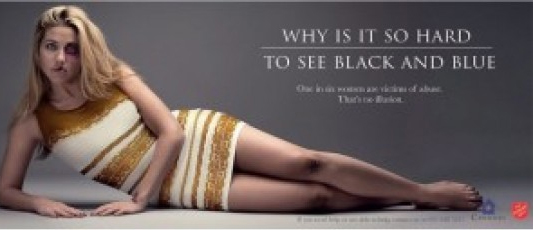
A new bus advert in Sydney (at least that’s where we saw it) has perplexed Words/Matter this week. The ad, for one of those protein drinks for gym bunnies, features a good-looking fit young man with a good-looking fit young woman draped on his shoulder (both are in their swimmers), behind the bold strap line “A Hard Man is Good to Find”.
At a time when the NSW State Government has just launched a $60m specialist police force to target domestic violence and high-profile rugby league player El Masri has been charged with just such domestic violence, this not-so-original advertising word play is (at best) badly timed, but (at worst) a clear indication of how the cult of the ‘hard man’ holds such appeal.
From a Words/Matter perspective, that appeal is exactly the problem. The cult of the hard man is just as seductive and ‘aspirational’ as the cult of the beautiful woman – and both are powerful cues the advertising sector constantly appeals to.
Of course, this is not to suggest for a minute that those behind this particular advert have been knowingly irresponsible or disrespectful. As one of the few jokes women made about men when I was young – the sexual innuendo was based on the oft lament among women that “a good man is hard to find, but a hard man is good to find” (hard, as in ‘tumescent’) – the play on words certainly seems light-hearted enough on the surface.
However, that metaphorical appeal is exactly what makes the appeal of the ‘hard man’ seem so normal. For the joke and connotation to make any sense, the ideal of a ‘hard man’ has to be based on some sense of reality. And this is the problem: until we as a social whole stop equating male hardness (and of course female beauty) with notions of “good”, aspiring to that ideal will continue to see men constantly trying to enhance, prove and ‘confirm’ their “hardness” – which all too often leads to destructive and violent behaviours.
The normality and ‘appeal’ of the hard man, and all its associations with ‘virility’ and ‘success’, are exactly why our societies struggle so much to really acknowledge and deal with the scourge of male violence in general and domestic violence in particular. It’s why, as a recent Salvation Army advert in Sth Africa pointed out, it’s so hard for us to really see ‘black and blue’.

